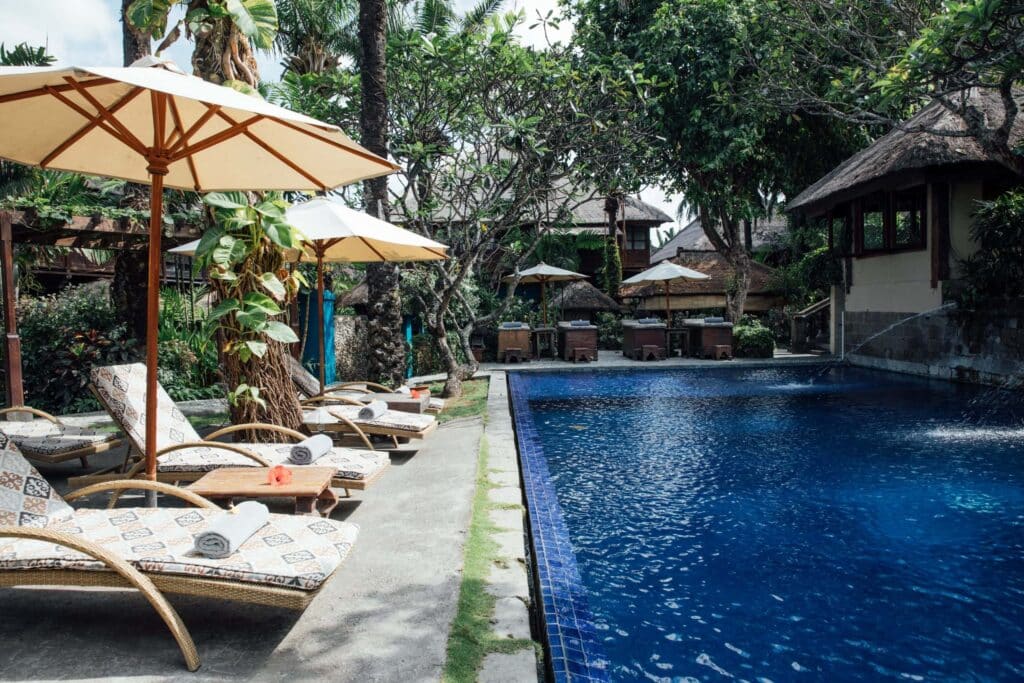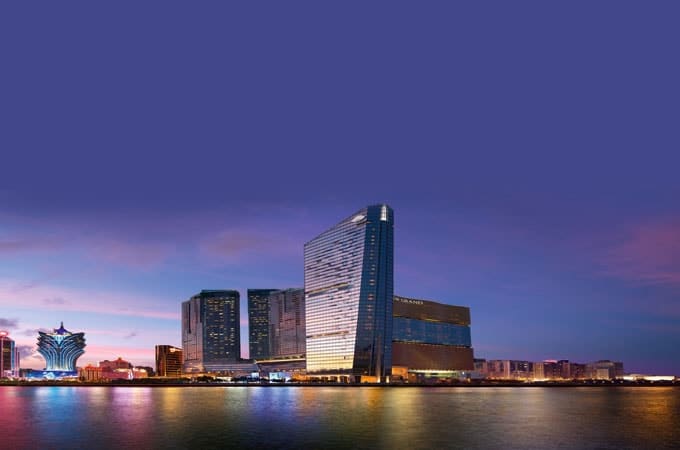Intro
Prepare to be entranced by hundreds of years of Balinese history and legend, and wowed by sumptuous suites and fabulous Asian food at this charming, romantic and utterly genuine heritage hotel.
Overview
Our arrival at Hotel Tugu was breathtaking. We left behind the bustle of Canggu’s Pantai Batu Bolong Street and passed between two guardian statues wrapped in saput poleng, the local black and white chequered cloth that represents the balance of good and evil. A covered, stone-slab pathway led us over a small pond and past carved wooden doors. At the end of the path was a grand reception hall with a bamboo and rattan roof that towered high above us. In the middle of the hall stood an 8m tall stone garuda, the mythical winged bird-god, and at its clawed feet a group of Balinese girls practised a traditional dance to enchanting music.
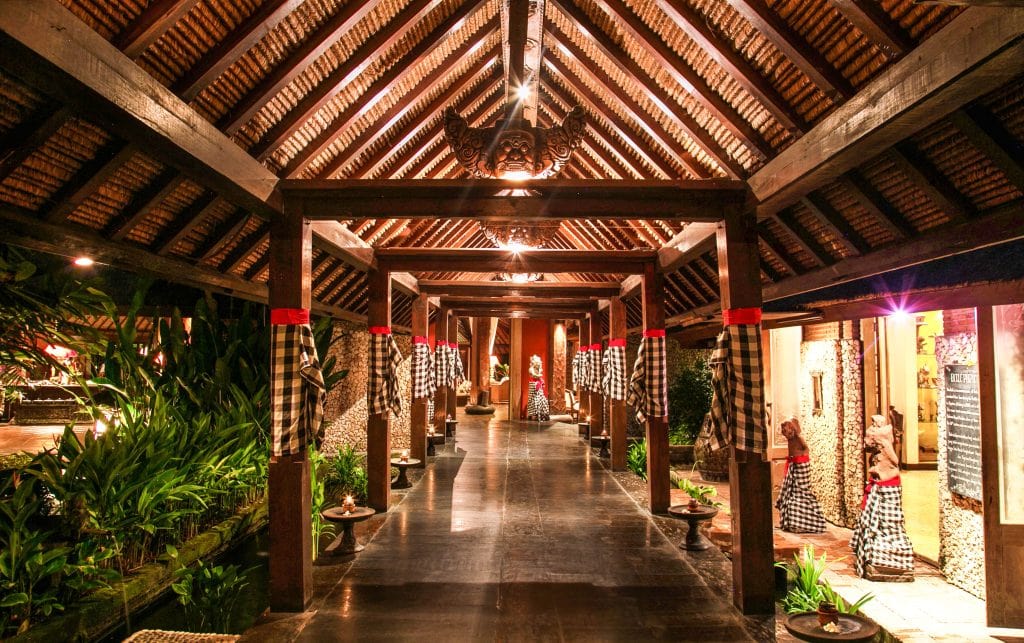
Look and feel
We had stepped back in time, to a Bali that is increasingly hard to find among the boutiques and nightclubs. Hotel Tugu is a living museum of Bali’s ancient legends and spirits. It’s full of antiques and artefacts collected over decades from this island and throughout Indonesia by the original owner, a renowned antiquities expert. His daughter, the current owner, has lovingly continued the hotel’s philosophy of displaying these art pieces that have witnessed centuries of history.
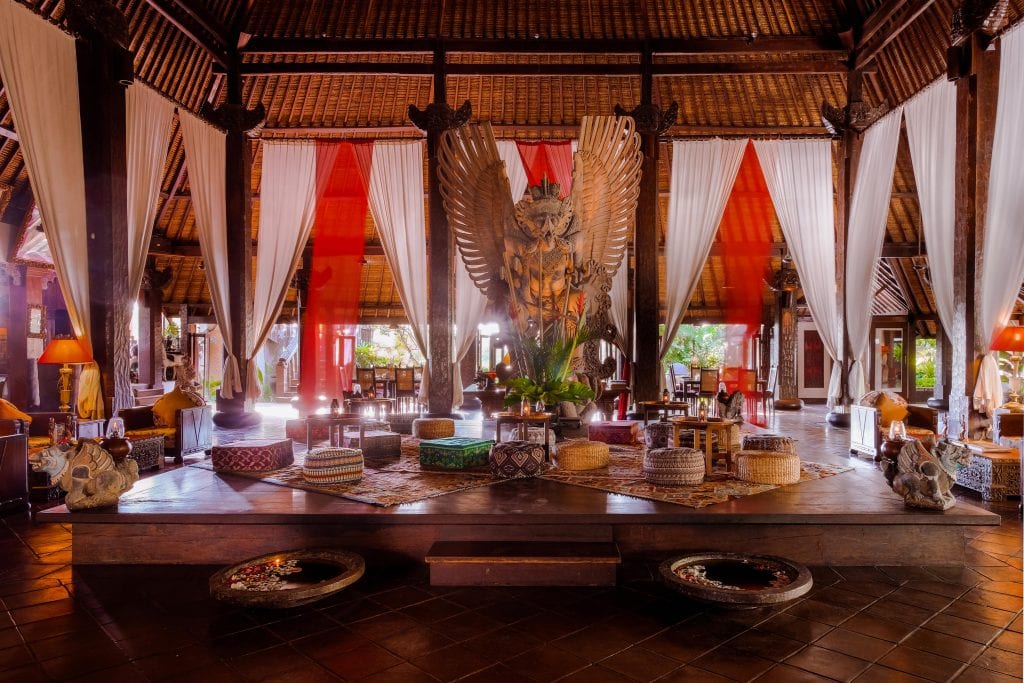
The place is full of painted chests, ornaments and intricately carved doors and beds, giving people a chance to touch history and learn about this island’s long and magical past. There’s even a complete Chinese temple that dates from 1706. It was brought by Chinese immigrants to Bali and saved by the hotel. It is now Bale Sutra 1706, possibly the most historic and atmospheric private dining room in Bali.
The hotel perfectly blends this rich tapestry of history with modern comforts – everything from the deliciously cool, blue-tiled pool to the award-winning Waroeng Djamoe spa, Indonesian IWA restaurant, Japanese–Chinese fusion Ji restaurant (with its super-cool terrace) and fun coffee shop.
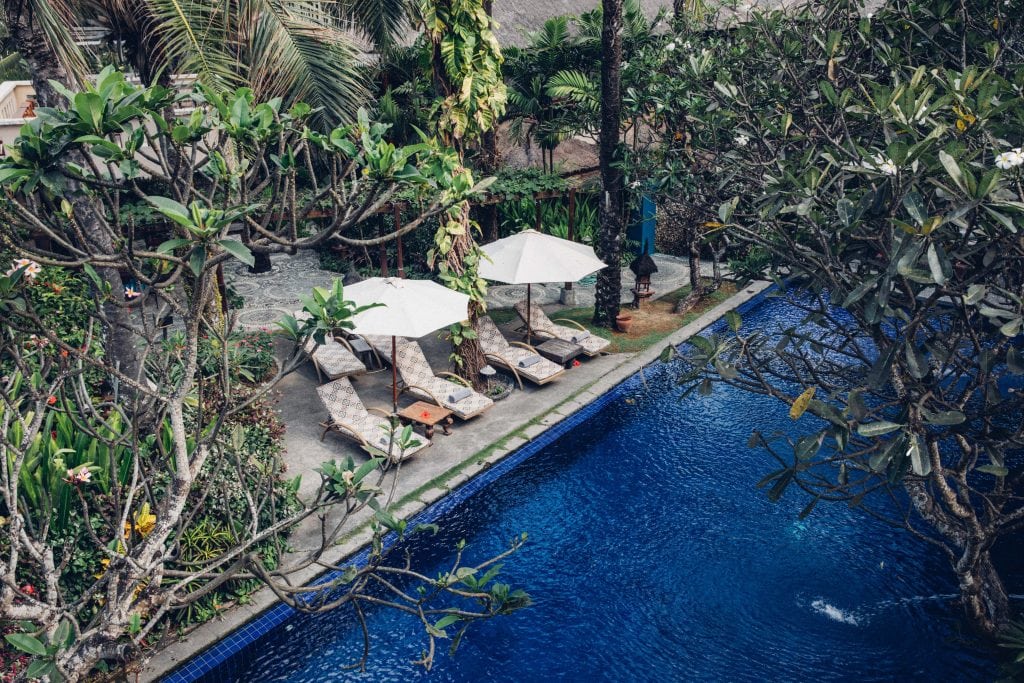
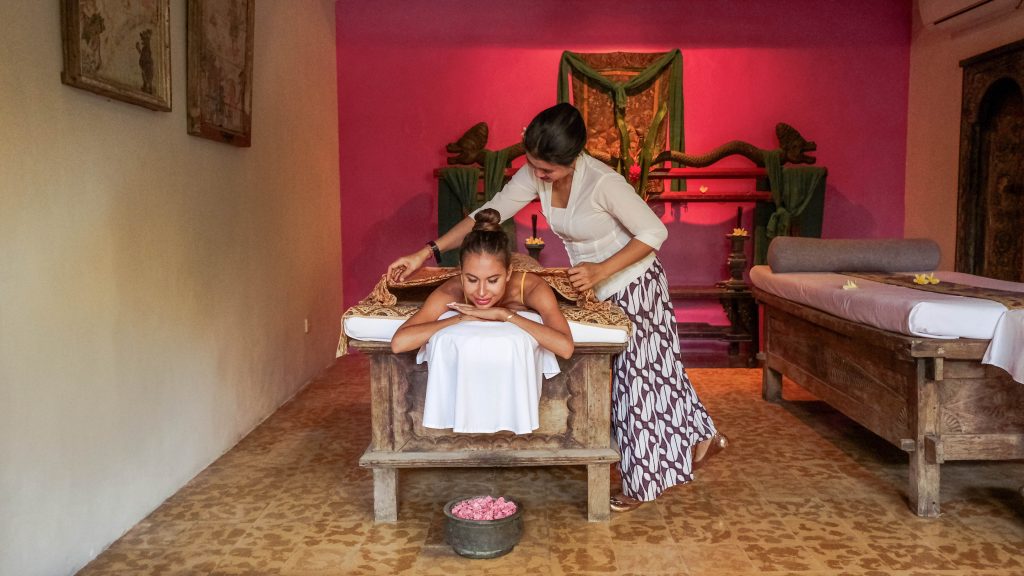
We hit the spa for a 30-minute Pijitan Leha Leha deep-tissue massage and got lucky because one of our therapists was also the hotel’s in-house priest and was happy to bless us after our treatments. Guests craving such wellness can also join prayer and meditation groups, and sessions featuring just about every type of yoga you can name.
Best room for two
The hotel has a series of traditional Javanese-style houses. Each house has one top-floor Rejang Suite (75sqm) and one ground-floor Dedari Suite (85sqm). Each suite was individually designed by the original owner, displaying great attention to detail and including examples of the hotel’s collection of antiques.
We split our stay between a Rejang and a Dedari. In our Rejang we had nobody above us and had good views over the hotel’s verdant grounds. We loved the carved four-poster bed and the sunken pewter bathtub.
In our Dedari, what we lost in views we made up for by having a private plunge pool, which was great for cooling down on a hot afternoon. The open-air bathrooms in the Dedari Suites may not be to everyone’s taste – especially if the mossies love you – but they can be very romantic when lit by nothing but candles.
Hotel Tugu also has two large villas. The Puri Le Mayeur Villa (200sqm) is lavishly decorated with beautiful artworks and a dramatic red carved bedhead. The villa also has a private plunge pool, a sunset veranda and a romantic open-air dining pavilion… and as if that wasn’t enough, it is surrounded by a lotus pond.
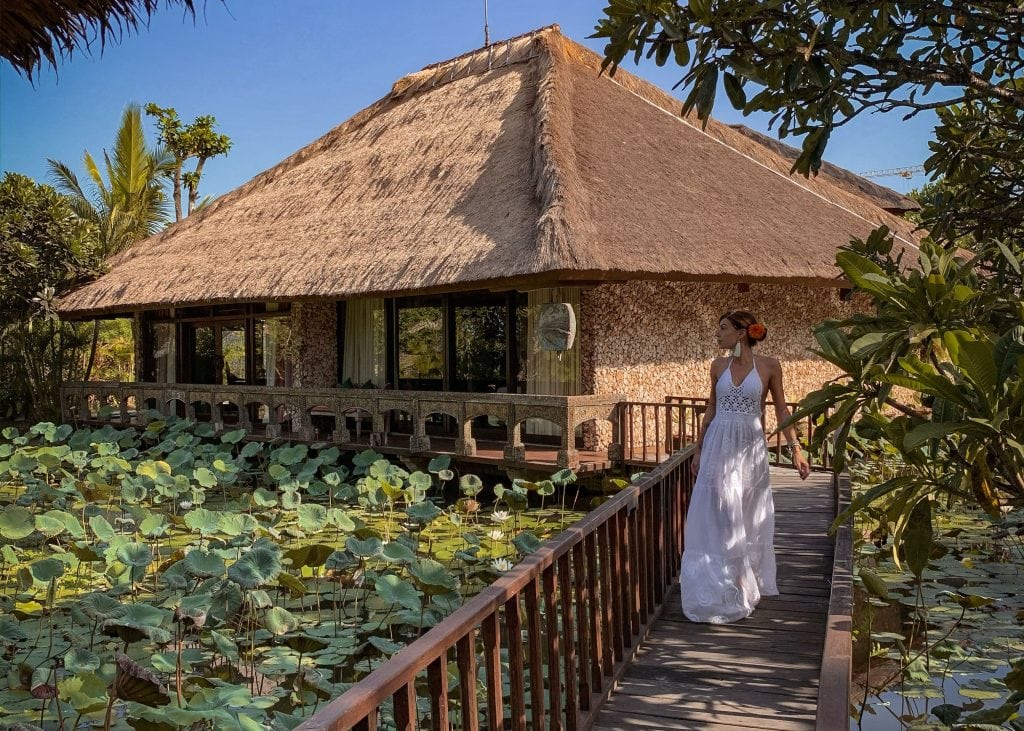
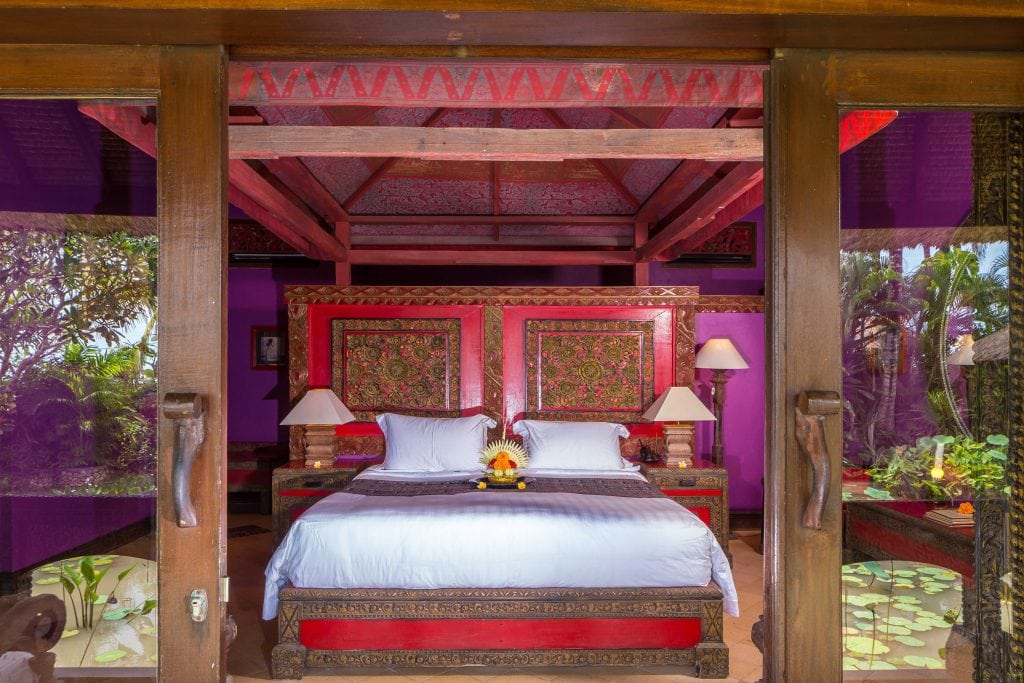
The Walter Spies Pavilion (170sqm) is a less richly decorated villa and has a separate living area and an outdoor bathtub, shower, plunge pool and yet more antiques but no view.
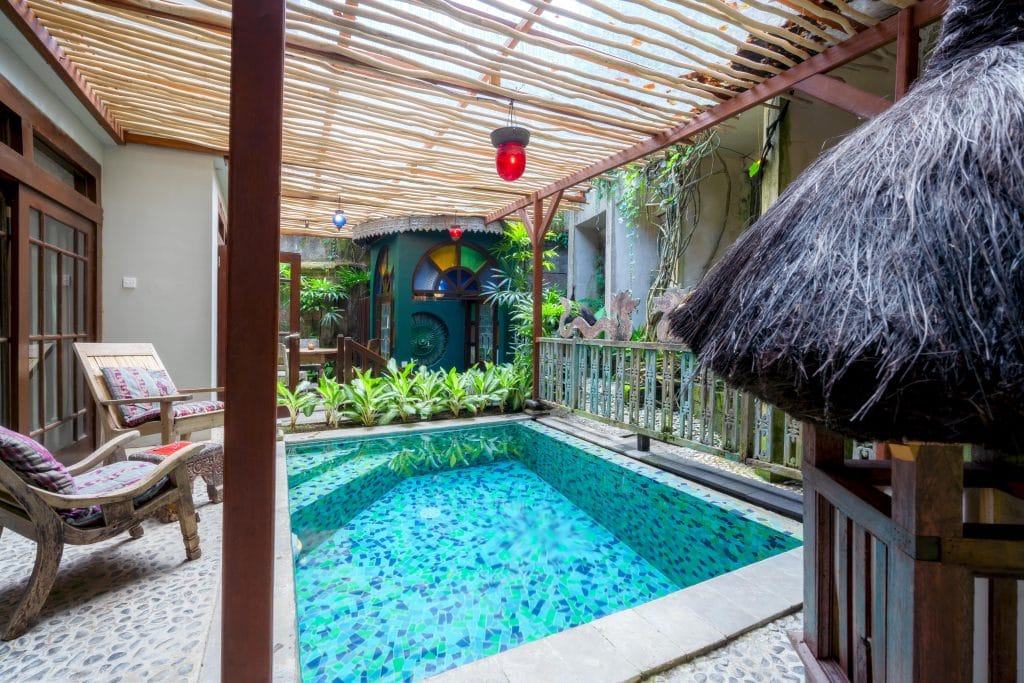
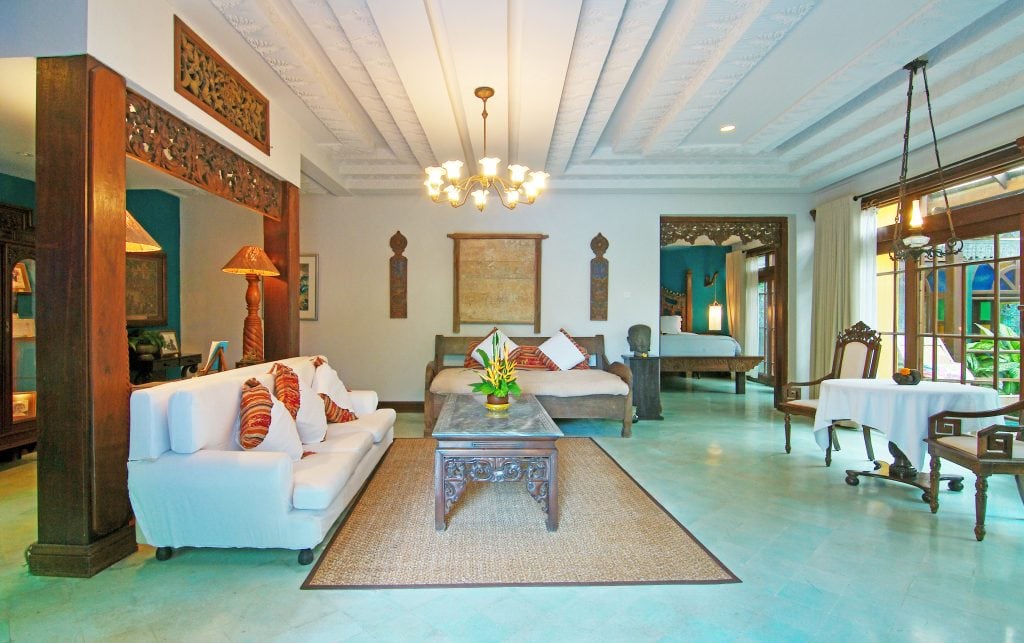
Food and drink
The real dining treat was sampling delicious Asian fusion dishes and cocktails at the open-air Ji Terrace By The Sea, watching the evening lightning setting the sky on fire. This is part of Ji, one of the hotel’s two main restaurants. We tasted amazing plates of scallop sushi with wakame salad and Keiji temaki salmon with caramelised pineapple and green shiso leaves. The cocktails flowed, starting with the hotel’s signature Tugu Gin & Tea (gin, Aperol, green tea and grapefruit and lime juice) then a Far East (rosella- and passionfruit-infused tequila with blue curacao and yuzu marmalade) and at least a couple of Coco Sexos (cachaca, coconut, vanilla and passionfruit).
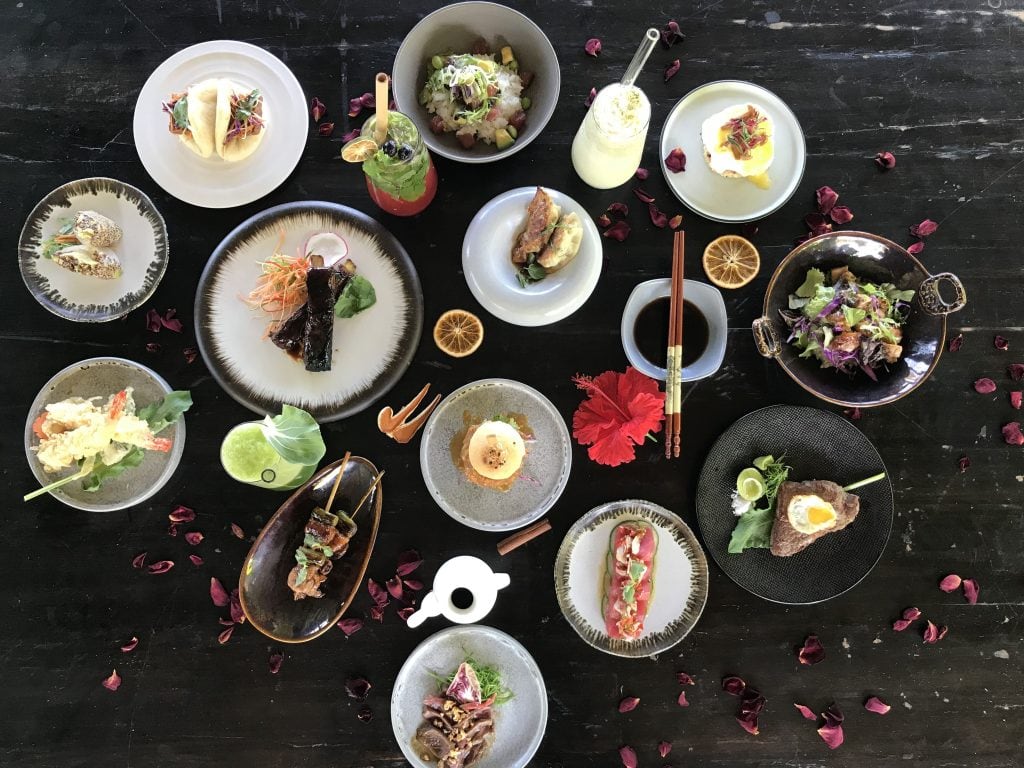
Ji Restaurant also services three other dining spots in the hotel: the main Ji restaurant, Bale Sutra 1706 and Bale Puputan, which is full of trinkets that tell the story of Balinese heroes who died opposing Dutch colonialism.
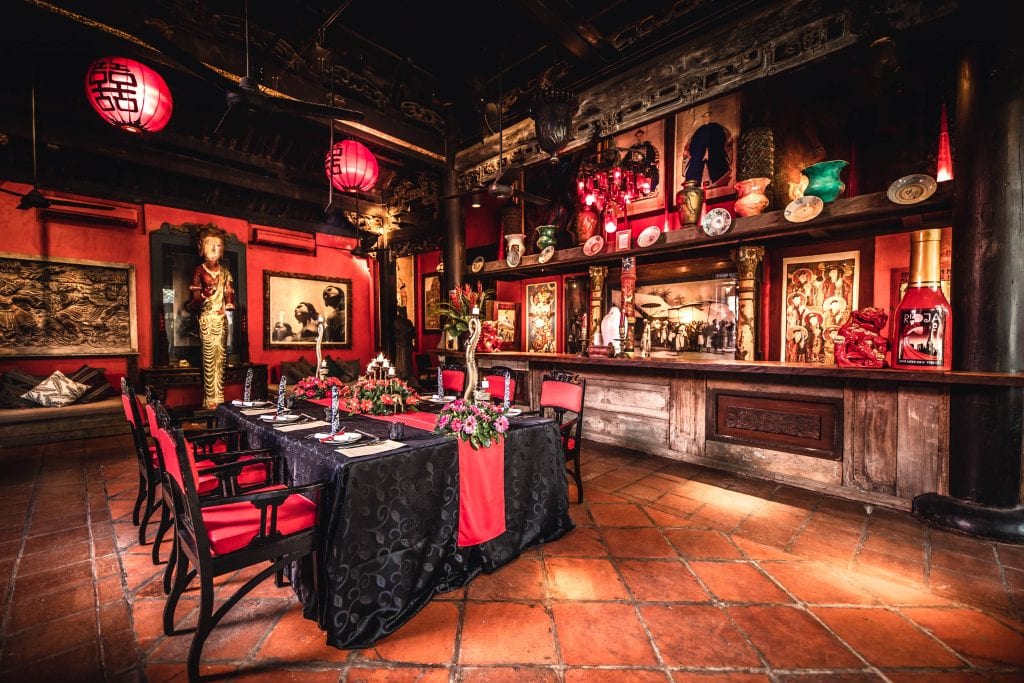
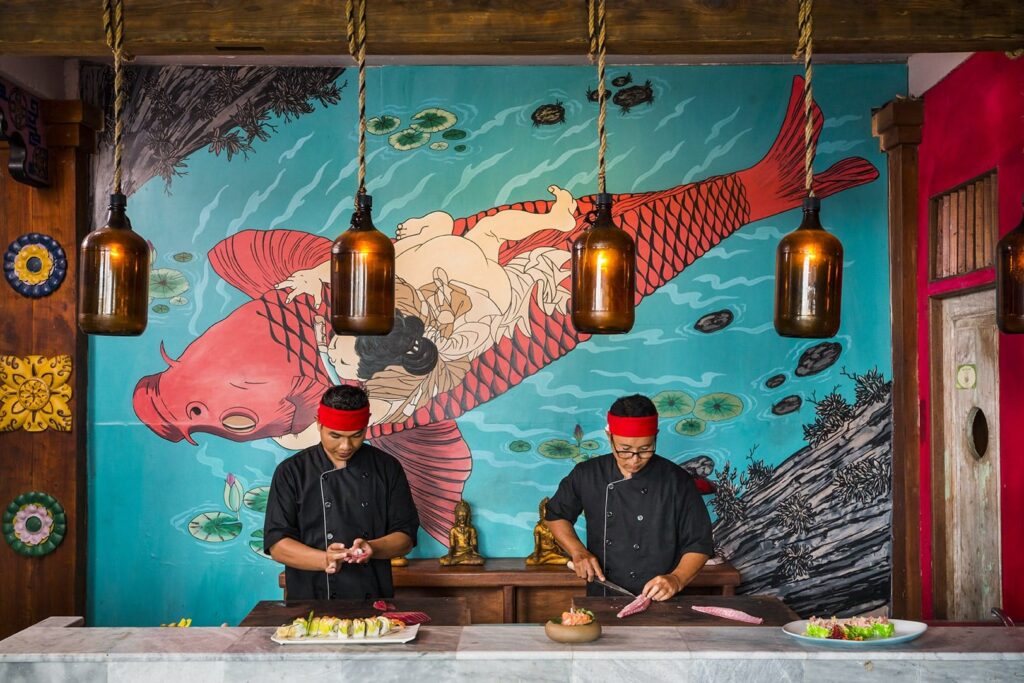
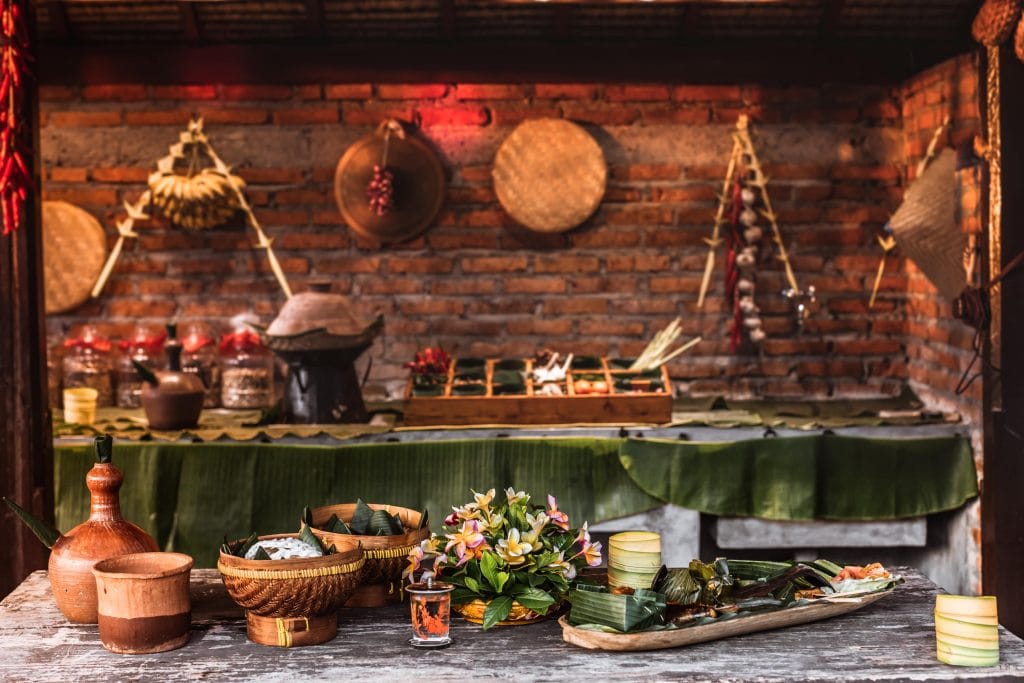
At Tugu’s other restaurant, IWA, we took a ‘Culinary Journey throughout the Indonesian Archipelago’ – an array of dishes presented on a fabulous carved wooden food ‘boat’ and accompanied by irresistible ginger and basil margaritas.
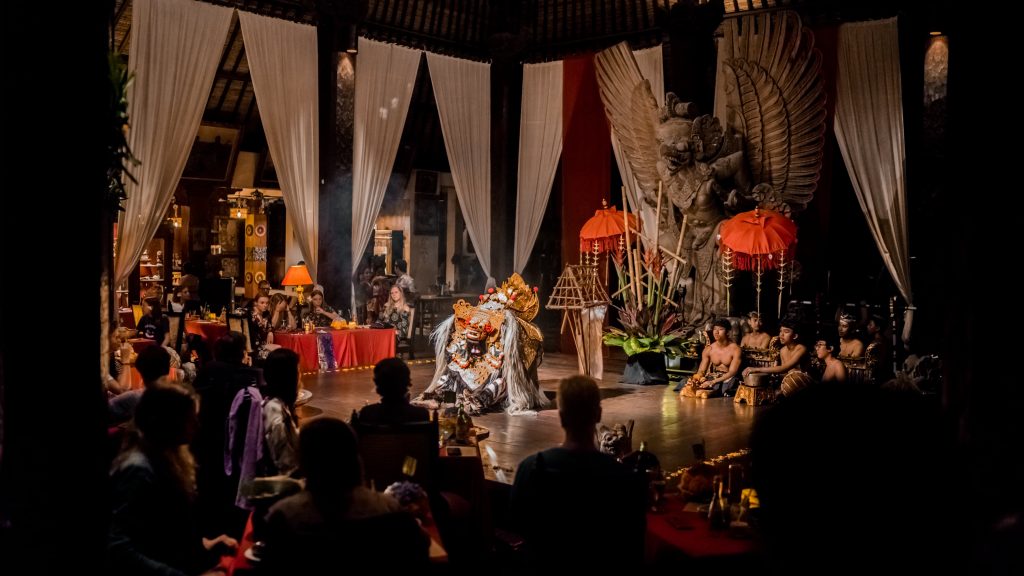
The final food-and-drink treat was a cute street-front coffee shop where we sampled brews from the hotel’s own Kawisari organic plantation on the slopes of the Mount Kelud volcano on Java.
Sustainability
Almost all the hotel’s fruit and vegetables come from its land in Java, which, in turn, helps to support a village community there. The hotel also has both no-plastic and zero-waste initiatives underway and it recycles cooking oils into candles and oil lamps.
Couples will love
Sipping cool cocktails and rare sakes while dining on sushi and sashimi at sunset up at Ji Terrace By The Sea, taking morning dips in the main pool and cool soaks in a private plunge pool on hot afternoons, and getting to grips with the complex but fascinating stories and legends of the Island of the Gods.
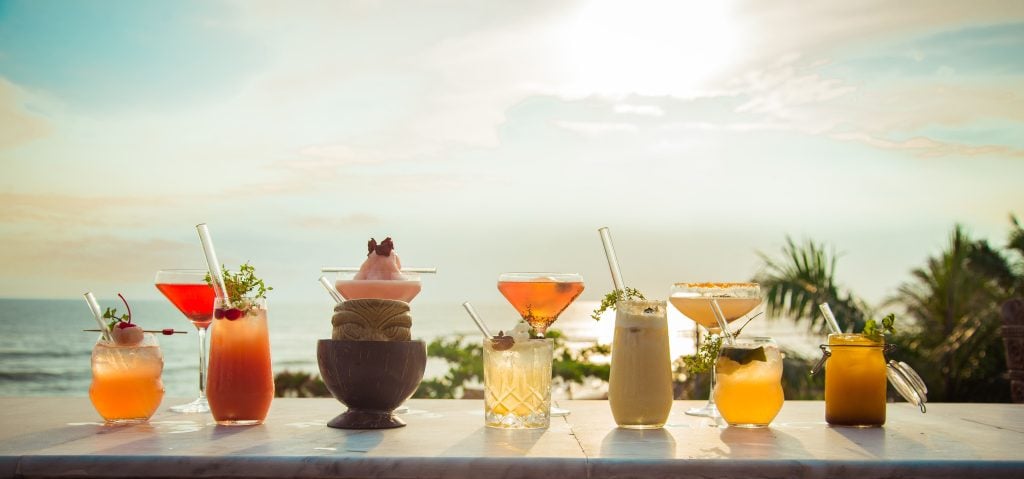
Book via the hotel website https://tuguhotels.com/hotels/bali/, email bali@tuguhotels.com or call +62 361 4731 701.
